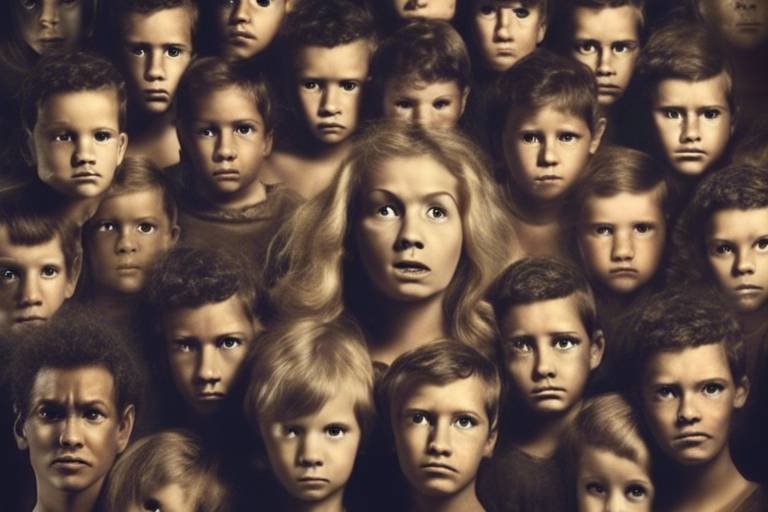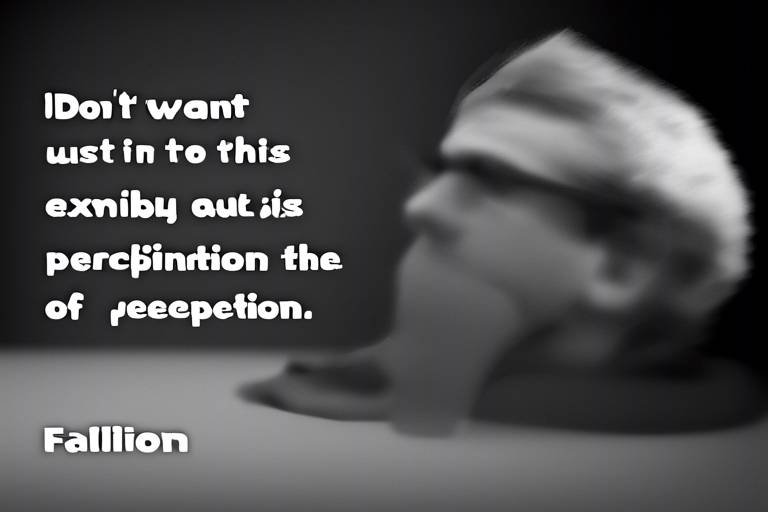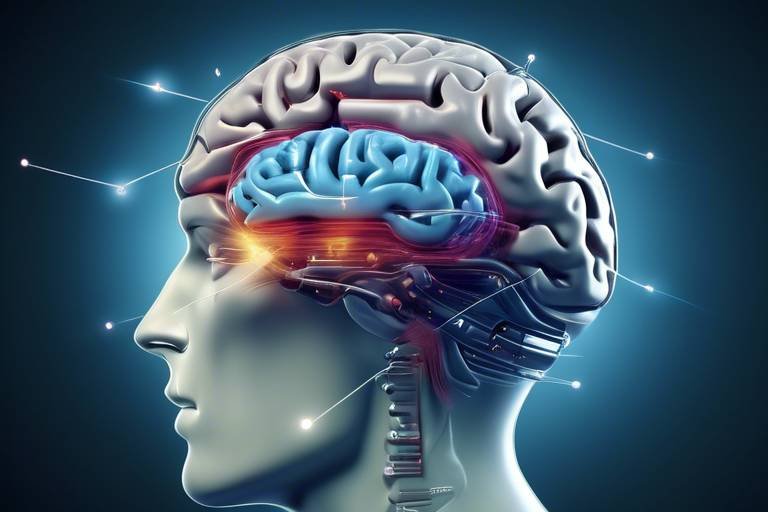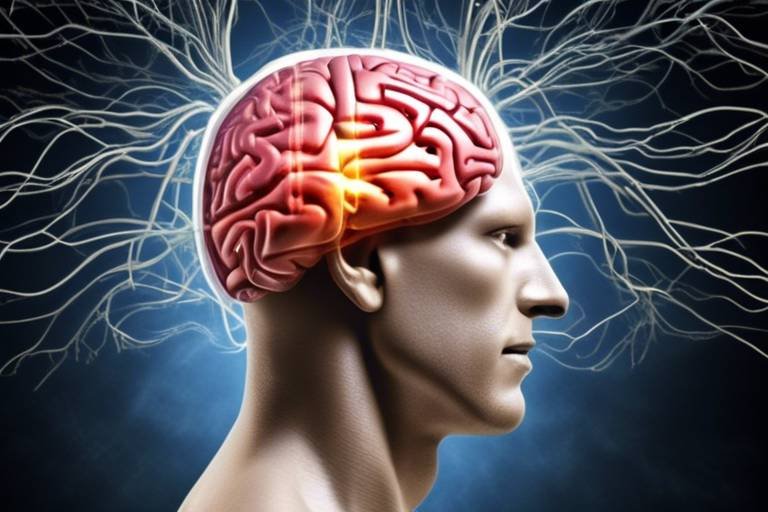Why Do We Need Consciousness?
Consciousness is not just a fancy term thrown around in philosophical debates; it is the very essence of our existence. Imagine waking up every day, going through the motions without being aware of your thoughts, feelings, or surroundings. Sounds dull, right? Consciousness breathes life into our experiences, allowing us to engage with the world in a meaningful way. It’s like having a spotlight that illuminates our thoughts and emotions, enabling us to navigate the complexities of life.
But why do we need consciousness? First and foremost, it allows us to **experience reality**. Without consciousness, we would be like robots, performing actions without any awareness or understanding of their significance. It is through consciousness that we perceive and interpret the world around us. We can appreciate beauty, feel joy, and even experience pain. These sensations shape our understanding of reality and provide a rich tapestry of experiences that contribute to our identity.
Moreover, consciousness plays a pivotal role in our **decision-making processes**. Have you ever found yourself at a crossroads, weighing your options? That inner dialogue, that mental wrestling match, is your consciousness at work. It allows us to evaluate choices, foresee potential outcomes, and ultimately make informed decisions that shape our lives. Without this capability, we would be lost, unable to chart our course in the world.
Additionally, consciousness fosters **self-awareness**. This is the ability to reflect on our own thoughts, emotions, and actions. Self-awareness is crucial for personal growth and development. It enables us to learn from our experiences, understand our motivations, and recognize our impact on others. Think about it: how can we improve ourselves or our relationships without first understanding who we are? Consciousness provides that crucial insight.
In a broader sense, consciousness connects us to others. It allows for empathy and understanding, enabling us to relate to the experiences of those around us. When we share our thoughts and feelings, we create bonds that enrich our lives. This interconnectedness is essential for building communities and fostering cooperation in society.
In summary, consciousness is not merely a byproduct of brain activity; it is a fundamental aspect of what it means to be human. It shapes our reality, guides our decisions, enhances our self-awareness, and fosters connections with others. Without consciousness, life would be a mere existence, devoid of meaning and richness. So, the next time you ponder the nature of consciousness, remember that it is the very fabric that weaves our experiences together, making life vibrant and worthwhile.
- What is consciousness? - Consciousness refers to the state of being aware of and able to think about one's own existence, thoughts, and surroundings.
- Why is consciousness important? - It is crucial for experiencing reality, making decisions, and fostering self-awareness and connections with others.
- Can animals be conscious? - Yes, many animals exhibit varying degrees of consciousness, challenging the notion of human superiority.
- How does consciousness affect decision-making? - Consciousness allows individuals to evaluate options and foresee consequences, leading to informed choices.

The Nature of Consciousness
Understanding what consciousness truly is opens the door to exploring its complexities. At its core, consciousness can be described as the state of being aware of and able to think about one's own existence, thoughts, and surroundings. It's like flipping on a light switch in a dark room; suddenly, everything becomes visible and comprehensible. But consciousness is not just about awareness; it encompasses a vast array of processes that influence our behavior, decisions, and interactions with the world around us.
One of the most intriguing aspects of consciousness is the distinction between conscious and unconscious processes. Think of it like an iceberg, where only a small portion is visible above the water's surface, representing our conscious thoughts, while the larger, submerged part symbolizes our unconscious mind. This unconscious realm is filled with memories, instincts, and biases that subtly guide our actions without us even realizing it. For instance, when you instinctively flinch at a loud noise, that reaction is rooted in unconscious processes that prioritize your safety.
The implications of these conscious and unconscious processes are profound. They shape our perceptions, influence our relationships, and even determine our responses to various situations. Imagine walking into a crowded room; your conscious mind might focus on finding a friend, while your unconscious mind picks up on social cues, such as body language and tone of voice, guiding your interactions. This interplay between the two levels of consciousness is what makes human behavior so rich and complex.
Moreover, consciousness is not a static entity; it evolves and adapts over time. Factors such as culture, personal experiences, and even biological changes can influence how we perceive and engage with our environment. This adaptability is crucial for survival, as it allows us to learn from past experiences and adjust our behaviors accordingly. Just as a chameleon changes its color to blend into its surroundings, our consciousness helps us navigate the ever-shifting landscape of life.
In conclusion, the nature of consciousness is a multifaceted phenomenon that encompasses awareness, unconscious processes, and the ability to adapt. It is the lens through which we experience reality, influencing our decisions and shaping our identities. As we delve deeper into the mysteries of consciousness, we uncover not only the essence of what it means to be human but also the intricate connections we share with all living beings.
- What is consciousness? - Consciousness refers to the state of being aware of and able to think about one's own existence, thoughts, and surroundings.
- What are conscious and unconscious processes? - Conscious processes are those thoughts and decisions we are aware of, while unconscious processes operate below our awareness, influencing our behavior without us realizing it.
- How does consciousness evolve? - Consciousness evolves through personal experiences, cultural influences, and biological changes, allowing us to adapt to our environment.

The Evolution of Consciousness
Understanding the evolution of consciousness is like peeling back the layers of an onion; each layer reveals a deeper insight into the complexities of human and animal experience. From the earliest organisms that roamed the Earth to modern humans, consciousness has undergone a remarkable transformation. But what exactly does this evolution entail? It’s not just about becoming smarter or more aware; it’s about survival and adaptation. Consciousness has evolved as a tool that enhances our ability to navigate our environments, make decisions, and ultimately thrive.
At its core, the evolution of consciousness can be viewed as a gradual process that has provided various species with distinct advantages. Early life forms, such as single-celled organisms, exhibited basic responses to their environments, like moving toward light or away from harmful stimuli. These rudimentary forms of awareness laid the groundwork for more complex cognitive processes. As species evolved, so did their consciousness, leading to more sophisticated behaviors and social structures.
Consider the evolutionary advantages of consciousness:
- Enhanced Survival: Consciousness allows organisms to assess risks, recognize threats, and adapt their behaviors accordingly. Imagine a deer in the woods; its ability to be aware of its surroundings can mean the difference between life and death.
- Social Interaction: As social animals evolved, consciousness became essential for understanding social cues, forming relationships, and cooperating within groups. This social awareness has led to the development of complex societies, as seen in species like elephants and primates.
- Problem Solving: Higher levels of consciousness enable species to solve problems creatively. For instance, crows and dolphins exhibit remarkable problem-solving skills, showcasing their advanced cognitive abilities.
Interestingly, the evolution of consciousness is not a linear path. Instead, it branches out like a tree, with various species developing unique forms of awareness based on their environmental needs. For example, while humans have developed advanced language and abstract thinking, other species may excel in different areas, such as navigation or sensory perception.
Moreover, consciousness is not solely a human trait. Many animals display varying degrees of awareness and cognitive skills. Research indicates that some species, such as chimpanzees, dolphins, and even certain birds, possess a level of self-awareness. They can recognize themselves in mirrors, solve complex puzzles, and even exhibit emotions similar to those of humans. This challenges the traditional notion of human superiority and invites us to reconsider our place within the animal kingdom.
To illustrate this point further, let’s take a look at a comparative table that highlights the cognitive abilities of various species:
| Species | Self-Awareness | Problem Solving | Social Behavior |
|---|---|---|---|
| Humans | Yes | Advanced | Complex |
| Chimpanzees | Yes | Advanced | Complex |
| Dolphins | Yes | Moderate | Complex |
| Crows | No | Advanced | Moderate |
In summary, the evolution of consciousness is a fascinating journey that highlights not only the adaptability of life on Earth but also the interconnectedness of all species. As we continue to explore this subject, we uncover more about our own consciousness and its implications for our understanding of reality. The more we learn, the more we realize that consciousness is not just a human trait; it’s a rich tapestry woven through the fabric of life itself.
- What is consciousness? Consciousness is the state of being aware of and able to think about one's own existence, thoughts, and surroundings.
- How has consciousness evolved? Consciousness has evolved from basic awareness in single-celled organisms to complex self-awareness in higher mammals, enhancing survival and social interactions.
- Do animals possess consciousness? Yes, many animals show varying degrees of consciousness, including self-awareness and problem-solving abilities.
- What are the implications of studying consciousness? Understanding consciousness can shed light on human behavior, decision-making, and our place in the natural world.

Consciousness in Animals
When we think about consciousness, our minds often drift toward human experiences, but what if I told you that consciousness isn't solely a human trait? In fact, the animal kingdom is teeming with fascinating examples of consciousness at play. Just like us, animals exhibit varying degrees of awareness and cognitive abilities, challenging the long-held belief of human superiority. Imagine a dolphin communicating with its pod through complex clicks and whistles or an elephant mourning the loss of a family member. These instances raise profound questions about the nature of consciousness in non-human beings.
Research into animal consciousness reveals that many species possess remarkable cognitive skills, often comparable to those of humans. For instance, studies have shown that certain primates can use tools, solve intricate puzzles, and even exhibit signs of self-awareness. Take the mirror test, for example, where a mark is placed on an animal's body, and if it recognizes itself in the mirror, it suggests a level of self-awareness. This test has been passed by several species, including great apes, dolphins, and even some birds like magpies!
But what does this mean for our understanding of consciousness? It suggests that consciousness is not a binary state but rather a spectrum. Different species may experience consciousness in unique ways, influenced by their environments and social structures. For instance, pack animals, like wolves, display a different kind of awareness, one that emphasizes social bonds and communication. In contrast, solitary animals, such as cats, may exhibit a more individualistic form of consciousness, focused on personal survival and territory.
Moreover, the emotional lives of animals provide further evidence of their conscious experiences. Studies have shown that many mammals experience emotions similar to humans, such as joy, grief, and empathy. For example, elephants have been observed engaging in what appears to be mourning rituals, touching the bones of deceased companions and exhibiting signs of distress. This emotional awareness is a crucial aspect of consciousness, suggesting that animals not only think but also feel deeply.
To sum it up, the exploration of consciousness in animals is not just an academic exercise; it reshapes our understanding of what it means to be conscious. It encourages us to reconsider our relationship with other species and recognize that consciousness, in its many forms, is a shared experience across the animal kingdom. As we delve deeper into this subject, we might find ourselves not just as observers of animal behavior but as participants in a broader, interconnected web of consciousness.
- Do all animals have consciousness? While many animals show signs of consciousness, the extent and nature of that consciousness can vary widely between species.
- How do scientists study animal consciousness? Researchers use various methods, including observational studies, cognitive tests, and neurological assessments, to explore consciousness in animals.
- What are some examples of self-awareness in animals? Animals such as dolphins, elephants, and certain birds have demonstrated self-awareness through tests like the mirror test.
- Can animals feel emotions similar to humans? Yes, many studies suggest that animals experience a range of emotions, including joy, grief, and empathy.

Comparative Cognition
When we dive into the fascinating world of , we embark on a journey that reveals how various species perceive their surroundings and interact with the world around them. This field of study is not just about comparing intelligence levels; it’s about understanding the diverse cognitive abilities that have evolved across species. Think of it as a grand tapestry woven from the threads of different minds, each contributing a unique pattern of thought and behavior. By examining these differences, we can appreciate the vast spectrum of consciousness that exists beyond our human experience.
To grasp the concept of comparative cognition, we must first acknowledge that intelligence is not a one-size-fits-all trait. For instance, while humans excel in problem-solving and abstract thinking, other species have developed remarkable skills suited to their environments. Take, for example, the way crows use tools to access food. Their ability to fashion tools from twigs or leaves showcases a level of foresight and planning that rivals that of some primates. This not only challenges the notion of human superiority but also highlights the adaptability of intelligence as a survival mechanism.
Moreover, understanding comparative cognition allows us to appreciate the emotional and social complexities of different animals. For instance, elephants display profound empathy and social structures that mirror human communities. They grieve for lost companions and even help injured members of their herd. Such behaviors suggest that consciousness is deeply intertwined with emotional intelligence, prompting us to rethink the criteria we use to measure cognitive abilities.
In this regard, researchers have employed various methods to study cognition across species. Some of these include:
- Problem-solving tasks: Observing how different animals approach challenges reveals their cognitive strategies.
- Social interactions: Analyzing how animals communicate and cooperate sheds light on their social intelligence.
- Memory tests: Understanding how well different species remember information can indicate their cognitive capacities.
As we delve deeper into comparative cognition, we uncover a rich landscape of mental capabilities that challenges our traditional views. This exploration not only enriches our understanding of animal intelligence but also prompts us to reflect on our own cognitive processes. Are we really as unique as we think, or are we just a part of a larger continuum of consciousness? By studying the minds of other species, we can gain invaluable insights into the very nature of thought, awareness, and existence.
- What is comparative cognition? Comparative cognition is the study of how different species think, learn, and solve problems, allowing us to understand the cognitive abilities across the animal kingdom.
- Why is it important to study animal cognition? Studying animal cognition helps us appreciate the diverse forms of intelligence in nature and challenges our assumptions about human superiority.
- How do researchers assess cognitive abilities in animals? Researchers use various methods, including problem-solving tasks, social interaction studies, and memory tests, to evaluate cognitive skills across species.

Animal Emotions and Awareness
When we think about emotions, it's easy to assume that only humans experience them in a complex way. However, recent research has shown that animals possess a rich emotional life that is both fascinating and profound. Imagine for a moment that your dog wags its tail not just because it’s excited to see you, but also because it feels a deep sense of love and attachment. This is just one example of how animal emotions can mirror our own, challenging the notion that humans are the only beings capable of such feelings.
Animals exhibit a wide range of emotions, from joy and affection to fear and sadness. For instance, studies have shown that elephants mourn their dead, displaying behaviors that suggest grief similar to humans. This emotional depth raises an important question: if animals can feel emotions, what does that say about their level of awareness? Are they simply reacting to stimuli, or do they have a conscious understanding of their feelings?
To delve deeper into this topic, researchers have employed various methods to assess animal emotions and awareness. One popular approach is to observe behavioral changes in response to different situations. For example, when faced with a stressful environment, many animals display signs of anxiety, such as pacing or vocalizing. This suggests that they are not only aware of their surroundings but also capable of experiencing emotional responses to them.
Furthermore, the emotional lives of animals can be categorized into several key areas:
- Social Bonds: Many species form strong social connections, indicating a level of emotional intelligence that facilitates cooperation and companionship.
- Empathy: Some animals, like dolphins and certain primates, have been observed displaying empathetic behaviors towards their peers, suggesting an awareness of others' emotional states.
- Playfulness: Play is not just a means of physical exercise; it also serves as an emotional outlet and a way for animals to explore their environment and social dynamics.
The implications of these findings are profound. They suggest that animal emotions and awareness are not merely instinctual but are intertwined with their ability to experience life in a meaningful way. This challenges the traditional view of human superiority and invites us to consider animals as sentient beings deserving of empathy and respect.
In conclusion, understanding animal emotions and awareness not only enriches our knowledge of the animal kingdom but also deepens our connection with our fellow creatures. As we learn more about their emotional lives, we are reminded of the intricate tapestry of life that we all share on this planet.
- Do animals experience emotions like humans? Yes, research indicates that many animals experience a range of emotions, including joy, sadness, and empathy.
- How can we measure animal emotions? Scientists often observe behavior changes in animals in response to different stimuli to gauge their emotional states.
- Are some animals more emotionally aware than others? Yes, studies suggest that certain species, like elephants and primates, demonstrate higher levels of emotional awareness and intelligence.
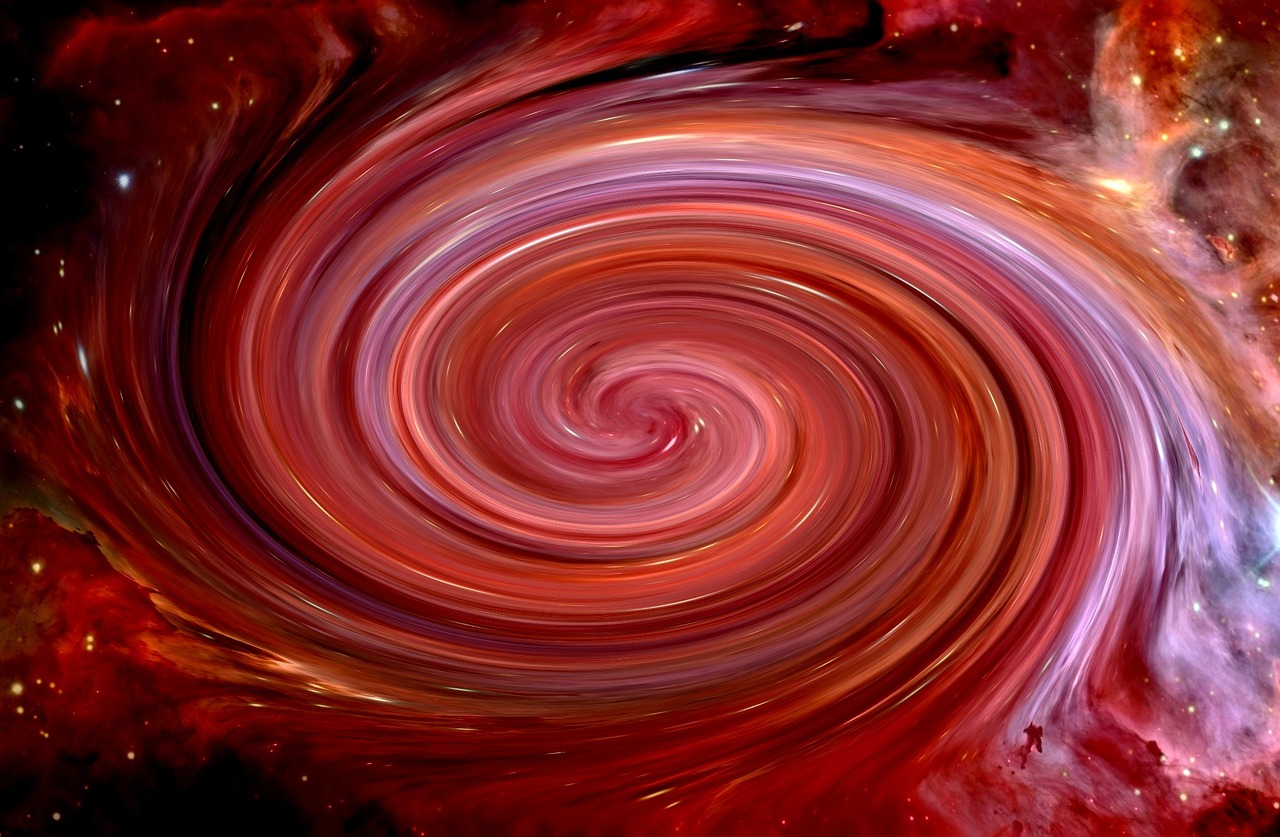
Consciousness and Self-Identity
Have you ever looked in the mirror and wondered, "Who am I?" This simple question taps into the profound relationship between consciousness and self-identity. Our consciousness shapes not only how we perceive the world but also how we perceive ourselves within it. The essence of our identity is woven into the fabric of our conscious experiences, memories, and reflections. It's like a tapestry, where each thread represents a moment, an emotion, or a decision that contributes to the larger picture of who we are.
At the core of self-identity lies the concept of self-awareness. This is the ability to recognize oneself as a distinct entity, separate from others and the environment. Self-awareness allows us to reflect on our thoughts and feelings, leading to a deeper understanding of our motivations and desires. Imagine trying to navigate a maze without knowing where you start or where you want to go; that’s what life feels like without self-awareness. It’s this conscious recognition of ourselves that enables us to set goals, make choices, and ultimately shape our lives.
Furthermore, our self-identity is influenced by various factors, including our experiences, relationships, and societal expectations. For example, consider how our upbringing and cultural background play a crucial role in forming our beliefs and values. These elements interact with our consciousness, creating a unique lens through which we view ourselves and the world. It’s as if each person carries a personalized filter that colors their perceptions and interactions.
Additionally, consciousness allows us to engage in introspection, examining our thoughts and feelings critically. This process is essential for personal growth, as it helps us identify patterns in our behavior and recognize areas for improvement. By consciously reflecting on our actions and their consequences, we can evolve and adapt, much like a caterpillar transforming into a butterfly. This transformation is not just physical but also psychological, as we redefine our self-identity through conscious choices.
However, the relationship between consciousness and self-identity is not always straightforward. There are moments when our consciousness can be clouded by external influences or internal conflicts, leading to a fragmented sense of self. This is often seen in situations where individuals struggle with their identity due to societal pressures or traumatic experiences. In such cases, the journey to reclaiming a coherent self-identity can be challenging but ultimately rewarding.
To further illustrate this complex relationship, consider the following table that outlines the key components of consciousness and their impact on self-identity:
| Component | Description | Impact on Self-Identity |
|---|---|---|
| Self-Awareness | The recognition of oneself as a distinct individual. | Enables personal reflection and understanding. |
| Memory | The ability to recall past experiences. | Shapes our narrative and understanding of who we are. |
| Emotional Intelligence | The ability to understand and manage emotions. | Influences how we relate to ourselves and others. |
| Introspection | The examination of one's own thoughts and feelings. | Facilitates personal growth and self-discovery. |
In conclusion, consciousness is the canvas upon which our self-identity is painted. It allows us to explore, reflect, and ultimately understand who we are in a world that is constantly changing. By embracing our consciousness, we can navigate the complexities of our identity, making informed choices that align with our true selves.
- What is consciousness? Consciousness refers to the state of being aware of and able to think about one’s own existence, thoughts, and surroundings.
- How does consciousness affect self-identity? Consciousness shapes our self-identity by allowing us to reflect on our thoughts, experiences, and emotions, helping us understand who we are.
- Can self-identity change over time? Yes, self-identity can evolve due to experiences, relationships, and personal growth, influenced by our conscious reflections.
- What role does memory play in self-identity? Memory helps construct our narrative, influencing how we view ourselves based on past experiences and lessons learned.

Consciousness and Decision-Making
Have you ever wondered how we make choices in our daily lives? The process of decision-making is intricately tied to our consciousness, acting like the steering wheel of a car, guiding us through the twists and turns of life. Consciousness allows us to evaluate options, foresee consequences, and ultimately make informed choices. Without this awareness, our decisions might feel more like random acts than thoughtful reflections of our desires and values.
At its core, consciousness enables us to process information actively. When faced with a decision, we engage in a mental dialogue, weighing the pros and cons, considering past experiences, and even imagining future outcomes. This process is not just about logic; it intertwines with our emotions, instincts, and even our social environment. For instance, when deciding whether to accept a job offer, we might think about salary and benefits, but we also consider how the job fits into our life goals, our relationships, and our overall happiness.
Interestingly, decision-making can be categorized into two main types: implicit and explicit. Implicit decision-making often occurs unconsciously, driven by past experiences and learned behaviors. It’s like riding a bike; once you learn, you don’t have to think about every single action. On the other hand, explicit decision-making is a more conscious process, requiring deliberation and analysis. Think of it as planning a road trip—every route, pit stop, and destination is carefully considered before you hit the road.
| Type of Decision-Making | Description | Examples |
|---|---|---|
| Implicit | Unconscious decisions based on habits and instincts. | Choosing your usual coffee order without thinking. |
| Explicit | Conscious decisions that involve careful thought and consideration. | Deciding on a new car after researching options. |
This duality in decision-making highlights the complexity of our thought processes. Our unconscious biases can significantly influence our choices, often without our awareness. For example, when selecting a restaurant, we might unconsciously favor places we've visited before or those recommended by friends, even if we haven't considered all available options. This is where consciousness plays a crucial role; it allows us to step back and challenge our initial instincts, fostering a more thoughtful approach to our choices.
Moreover, conscious reflection enhances our decision-making abilities. By taking the time to think about our experiences and the outcomes of our previous choices, we can learn and grow. This reflection is like polishing a diamond; it reveals the brilliance of our insights and helps us navigate future challenges more effectively. It's not just about making better choices; it's also about understanding ourselves better. What drives our decisions? What values are we prioritizing? These questions can lead to profound personal growth.
In conclusion, consciousness is the bedrock of our decision-making processes. It empowers us to make choices that are not only informed but also aligned with our values and aspirations. By understanding the interplay between consciousness and decision-making, we can enhance our ability to navigate life's complexities with greater awareness and intention.
- What is the role of emotions in decision-making? Emotions play a significant role in how we make decisions, often influencing our choices more than we realize.
- Can unconscious biases affect my decisions? Yes, unconscious biases can shape our preferences and choices without us being aware of them.
- How can I improve my decision-making skills? Engaging in conscious reflection and being aware of your thought processes can enhance your decision-making abilities.

Implicit vs. Explicit Decision-Making
When we think about how we make choices, it’s fascinating to consider the two different pathways our minds can take: implicit and explicit decision-making. These two processes represent the intricacies of our cognitive abilities, each playing a unique role in shaping our choices and behaviors. Implicit decision-making is often automatic, occurring without our conscious awareness. It's like driving a car on a familiar route; you don’t need to think about every turn or stoplight because your brain has internalized that information. This type of decision-making is influenced by past experiences, emotions, and even biases, allowing us to react quickly in situations where time is of the essence.
On the other hand, explicit decision-making is a more deliberate process. It’s when we consciously weigh our options, analyze potential outcomes, and make informed choices. Imagine standing in front of a menu at a restaurant; you read through the options, consider your preferences, and finally decide what to order. This thoughtful approach can lead to better outcomes because it allows for rational evaluation and reflection. However, it can also be time-consuming and mentally exhausting, especially when faced with complex decisions.
To further illustrate the differences between these two types of decision-making, let’s look at a comparison table:
| Feature | Implicit Decision-Making | Explicit Decision-Making |
|---|---|---|
| Awareness | Unconscious | Conscious |
| Speed | Fast | Slow |
| Influences | Emotions, past experiences, biases | Logic, analysis, information |
| Examples | Choosing a snack based on cravings | Deciding on a career path after research |
It's important to recognize that both implicit and explicit decision-making processes have their merits and drawbacks. Implicit decisions can lead to quick, instinctive choices that might be beneficial in familiar contexts. However, they can also result in errors or biases if we’re not careful. Conversely, while explicit decisions allow for thorough consideration, they can lead to overthinking and analysis paralysis, where we become so bogged down in details that we struggle to make any choice at all.
In our daily lives, we often oscillate between these two modes of decision-making. For instance, when shopping for groceries, you might automatically reach for your favorite brand of cereal (implicit), but when planning a vacation, you may spend hours comparing destinations and prices (explicit). Understanding the balance between these two approaches can empower us to make more informed choices, ultimately enhancing our decision-making skills.
In conclusion, the interplay between implicit and explicit decision-making is a fascinating aspect of human cognition. By recognizing when to rely on our instincts and when to engage in careful analysis, we can navigate life's choices with greater confidence and clarity.
- What is implicit decision-making? Implicit decision-making refers to choices made unconsciously, often influenced by emotions and past experiences.
- What is explicit decision-making? Explicit decision-making involves a conscious evaluation of options and outcomes, allowing for informed choices.
- Can both types of decision-making be useful? Yes, both implicit and explicit decision-making have their advantages and can be beneficial in different contexts.
- How can I improve my decision-making skills? Understanding when to trust your instincts versus when to analyze options can enhance your overall decision-making abilities.

The Role of Conscious Reflection
Conscious reflection is like a mental mirror that allows us to examine our thoughts, feelings, and actions. It’s that moment when you pause and think, “What just happened?” or “Why did I react that way?” This process is essential for personal growth and self-awareness. When we engage in conscious reflection, we’re not just going through the motions; we’re actively analyzing our experiences. It’s akin to a detective piecing together clues to solve a mystery—our own lives.
One of the most profound aspects of conscious reflection is its ability to help us learn from our experiences. When we take the time to reflect, we gain insights that can inform our future decisions. For instance, consider a time when you faced a tough choice. By reflecting on the outcome, you can identify what worked well and what didn’t. This self-analysis can lead to improved decision-making in the future, making you more adept at navigating life's complexities.
Moreover, conscious reflection fosters emotional intelligence. By examining our feelings and the reasons behind them, we can develop a deeper understanding of ourselves and others. This heightened awareness can enhance our empathy, allowing us to connect with people on a more meaningful level. Imagine being in a conversation where you’re not just hearing words, but truly understanding the emotions behind them. That’s the power of conscious reflection.
Incorporating conscious reflection into our daily lives can be transformative. Here are a few strategies to cultivate this practice:
- Journaling: Writing down your thoughts and feelings can provide clarity and serve as a valuable reference for future reflection.
- Mindfulness Meditation: Taking time to meditate can help quiet the mind and create space for reflective thinking.
- Discussing with Others: Engaging in conversations with trusted friends or mentors can offer new perspectives and insights.
In essence, conscious reflection is not merely a passive activity; it’s an active engagement with our own minds. It allows us to break free from autopilot mode, where we often drift through life without truly understanding ourselves. By embracing this practice, we can enhance our decision-making abilities, foster emotional intelligence, and ultimately, lead more fulfilling lives.
Q: What is conscious reflection?
A: Conscious reflection is the process of actively thinking about and analyzing our thoughts, feelings, and actions to gain insights and understanding.
Q: How can I practice conscious reflection?
A: You can practice conscious reflection through journaling, mindfulness meditation, and engaging in discussions with others.
Q: Why is conscious reflection important?
A: It is important because it helps us learn from our experiences, enhances emotional intelligence, and improves our decision-making skills.
Q: Can conscious reflection lead to personal growth?
A: Absolutely! By reflecting on our experiences, we can identify areas for improvement and make better choices in the future.

The Philosophical Implications of Consciousness
The exploration of consciousness delves deep into the philosophical implications that have puzzled thinkers for centuries. At its core, consciousness raises profound questions about free will, the nature of reality, and the intricate relationship between the mind and body. Have you ever pondered whether our choices are genuinely ours, or are they merely the product of predetermined factors? This question lies at the heart of the free will debate, suggesting that while we feel in control, our consciousness could be influenced by a multitude of external and internal factors.
Moreover, the nature of reality itself is called into question by our conscious experiences. What if our perception of the world is merely a construct of our minds? Philosophers like Immanuel Kant argued that our understanding of reality is shaped by our sensory experiences, which are inherently subjective. This leads us to consider whether there is an objective reality that exists independently of our consciousness or if we are all trapped in our own unique perceptions.
Another significant philosophical issue is the mind-body problem, which explores how our mental states relate to physical processes in the brain. Are thoughts purely biochemical reactions, or is there something more to our consciousness? This question has sparked numerous theories, from dualism, which posits that mind and body are separate entities, to physicalism, which argues that everything about the mind can be explained through physical processes. The implications of these theories extend beyond academic discourse, influencing fields such as psychology, neuroscience, and even artificial intelligence.
As we delve further into these philosophical discussions, it becomes evident that consciousness is not just a topic for academic debate. It touches on our daily lives and shapes our understanding of what it means to be human. The implications of consciousness challenge us to reflect on our existence, our decisions, and our interactions with others. In essence, consciousness is the lens through which we experience the world, making its philosophical implications both profound and deeply personal.
As we continue to investigate the nuances of consciousness, we can’t help but wonder: what does it mean for our understanding of existence? Are we merely observers in a vast universe, or do we play an active role in shaping our reality? These questions not only fuel philosophical inquiry but also inspire us to seek a deeper understanding of ourselves and our place in the cosmos.
- What is consciousness? - Consciousness refers to the state of being aware of and able to think about one's own existence, thoughts, and surroundings.
- Is consciousness the same for everyone? - No, consciousness can vary significantly among individuals based on factors such as experiences, culture, and cognitive abilities.
- How does consciousness relate to free will? - The relationship is complex; while we feel we make free choices, some argue our decisions are influenced by unconscious processes.
- What is the mind-body problem? - This philosophical issue questions how mental states relate to physical processes in the brain, exploring whether they are separate entities or one and the same.
Frequently Asked Questions
- What is consciousness?
Consciousness is the state of being aware of and able to think about one's own existence, thoughts, and surroundings. It's like having a spotlight in your mind that shines on certain thoughts and experiences, allowing you to process and understand them.
- Why is consciousness important in decision-making?
Consciousness plays a crucial role in decision-making as it enables us to evaluate options, foresee consequences, and make informed choices. Think of it as a guide that helps you navigate through life's choices, ensuring you're not just reacting but actively engaging with your decisions.
- How has consciousness evolved over time?
Consciousness has evolved as a survival mechanism, providing adaptive advantages that help individuals and species thrive. It’s like upgrading your software; as our environments changed, so did our consciousness, allowing for better problem-solving and social interactions.
- Do animals possess consciousness?
Yes, many animals exhibit varying degrees of consciousness, showcasing awareness and cognitive abilities. This challenges the traditional view of human superiority and opens up a fascinating dialogue about the emotional and intellectual lives of non-human species.
- What is the difference between implicit and explicit decision-making?
Implicit decision-making occurs subconsciously, often influenced by biases and past experiences, while explicit decision-making involves conscious thought and deliberation. Imagine it as choosing a meal: sometimes you just grab what you like without thinking (implicit), and other times you carefully consider your options (explicit).
- How does consciousness relate to self-identity?
The relationship between consciousness and self-identity is essential for understanding how we perceive ourselves and our place in the world. Our conscious thoughts shape our identities, influencing how we interact with others and make choices that reflect who we are.
- What are the philosophical implications of consciousness?
Philosophical discussions around consciousness often delve into questions of free will, the nature of reality, and the mind-body problem. These inquiries challenge us to think deeply about existence and our understanding of what it means to be conscious.




